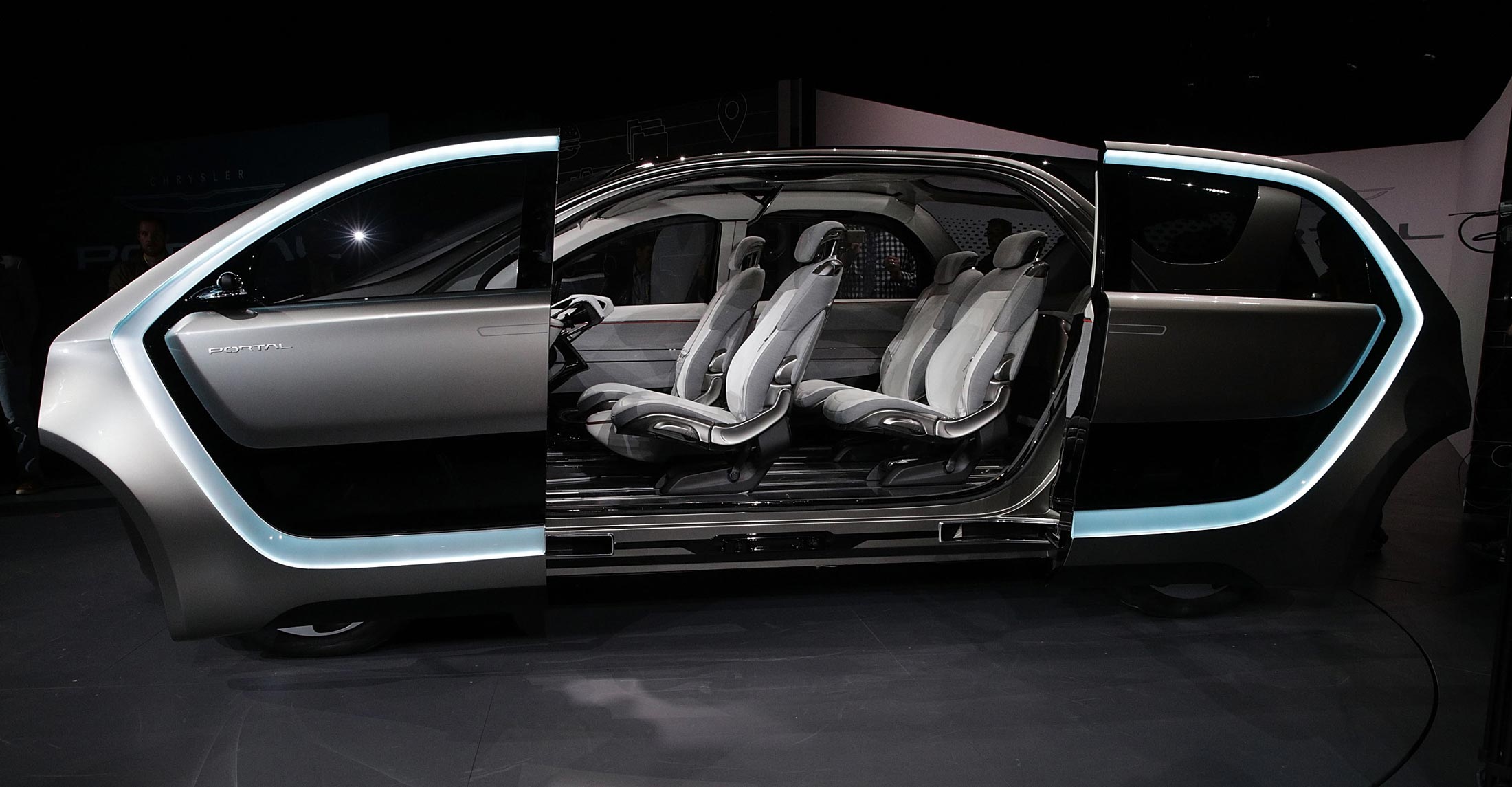Sergio Marchionne, one of the longest-serving CEOs in the auto industry, has a stark warning: Carmakers have less than a decade to reinvent themselves or risk being commoditized amid a seismic shift in how vehicles are powered, driven and purchased.
Developing technologies like electrification, self-driving software and ride-sharing will alter consumers’ car-buying decisions within six or seven years, the Fiat Chrysler Automobiles NV chief executive said in an interview. The industry will divide into segments, with premium brands managing to hold onto their cachet while mere people-transporters struggle to cope with the onslaught from disruptors like Tesla Inc. and Google’s Waymo.
“Auto companies need to quickly separate the stuff that will be swallowed by commodity from the brand stuff,” Marchionne said.
In a two-hour interview in Detroit ahead of this week’s North American International Auto Show, Marchionne discussed his vision for the industry and confirmed plans to step down next year. Within a decade, he expects widespread adoption of cars at Level 4 autonomy, capable of driving without human intervention in restricted geographic areas. By 2025, he predicts that fewer than half the cars sold will be be fully combustion-powered.
The following excerpt from the interview about the future of the industry has been condensed and edited.
Bloomberg News: How do you see the auto industry in 10 years from now?
Sergio Marchionne: I think the likelihood that combustion will continue to represent the large portion of the power unit world is very small. Automation will become widely spread. Certainly up to Level 4.
So traditional combustion engines will lose their dominant role?
By 2025 more than half of the power units you see on the road will have some relevance of electrification. There may be a base combustion engine, but it is combustion and electrification that will make the machine run. Electrification will happen not necessarily as full battery‑electric vehicles but in combination with other forms of power. It’s going to be a very interesting time.

The Chrysler Portal, an electric-powered concept minivan, is seen with its sidedoors opened during a press event for CES 2017 on January 3, 2017 in Las Vegas.
Photographer: Alex Wong/Getty Images
How can Fiat Chrysler survive? Have you been behind others on that?
We need to be very careful about people that make noise. We have been very reluctant to make statements about where the industry is going to go. The Wrangler is going hybrid in 2020. We don’t make much noise about that, but it will happen. It’s part of normal development.
We all have lived through the phase when everybody thought it is going to be all ride-sharing, and we have seen some of the shine come off those alternatives. There are other solutions beyond Uber and Lyft to get there, including OEMs [original equipment manufacturers] who could come into that place and play.
There is nothing that would prevent Fiat Chrysler from providing ride-sharing service to a wider community and using our dealer network for this. The industry has talked about these things as if they’re commonly available today and are just around the corner. The transition is going to be longer. And I think of all the work that we’ve done on the inside and will continue to do.
So you are not behind competition?
No. If you would have come at CES, you would have discovered that the number of non-carmakers who are providing electrification and artificial intelligence solutions for the car industry has exploded. So we talk to everybody, and we are continuously learning and making selections on the basis of the best available technology.
As an example, the collaboration we announced with BMW.
How’s it going?
It’s going well, in total accordance with the proposal. We have people on the ground working with them. They have a lead position in some areas because they have started earlier, but we are contributing our resources. The important thing is to provide a common platform.
Ten years from now, how many carmakers will survive?
If a portion of the industry is going to be commoditized, then the attrition rate is going to be tremendous for those that cannot distinguish by brand.
And there’s this risk?
Not for FCA. We took a completely different strategy when we came to brand differentiation than our competitors. If you look at Jeep, RAM, and the premium brands, those are brands that will survive. But if you provide basic transportation, it is like buying a generic phone.

Fiat 500 electric cars are charged on the production line at Chrysler’s assembly plant in Toluca, Mexico.
Photographer: Susana Gonzalez/Bloomberg
Some of your competitors are in that business.
Yes, and there is part of the FCA portfolio in that field. The brand that’s most vulnerable to commoditization is Fiat itself. I think we can protect it as long as we stick to the 500 and the Sport 500 families, while bread-and-butter sedans that compete with PSA Group’s Opel and Peugeot brands may face a harder road in the long run.
Does FCA have the means to survive?
Yes by far. This business has never been for the fainthearted. The technology changes that are coming are going to make it probably more challenging than it’s ever been.
